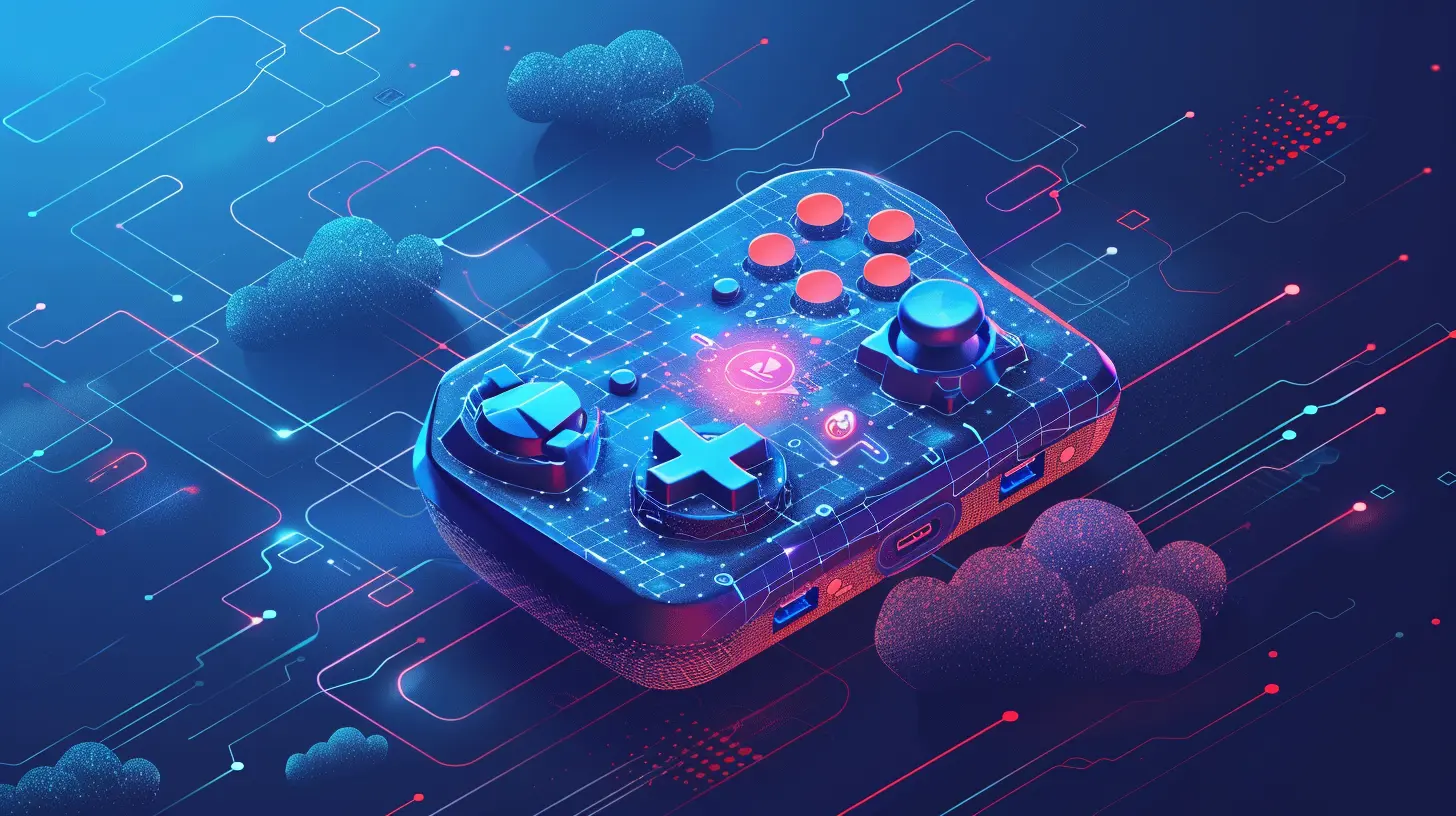Security and Privacy in the World of Cloud Gaming
18 September 2025
Cloud gaming is the shiny new toy in the gaming world. No hefty downloads, no bulking up your hard drive, just jump in and play — anytime, anywhere. Sounds like a dream, right? But with great convenience comes... well, great risk. If you're diving headfirst into the cloud gaming pool, it's time we have a real talk about something that’s often overlooked: your security and privacy.

What Is Cloud Gaming, Exactly?
Before we crack open the digital safe and talk protection, let’s briefly cover what cloud gaming actually is. Imagine Netflix, but for video games. Instead of installing games on your PC or console, you stream them from remote servers. The heavy hardware lifting is done somewhere else — in a giant data center, not your living room.Popular platforms like NVIDIA GeForce NOW, Xbox Cloud Gaming (xCloud), Google Stadia (RIP), and Amazon Luna allow you to play games on almost any device with an internet connection. Sounds pretty sweet, huh?
But here’s the real kicker — because all your gameplay data, personal info, and even voice chats are being routed through remote servers, your digital footprint is bigger than ever before. And you better believe cybercriminals notice that kind of thing.

Why Should You Care About Security and Privacy?
Alright, let's be honest — if you're like most gamers, you're probably more worried about lag than how your data’s being handled. But here's the deal:Your personal information (email, location, payment details), your gameplay behavior (when you play, how you play), and even your voice input might be collected, stored, and possibly shared. That ain't just casual data — that's some real personal stuff.
So, how does cloud gaming impact your security and privacy? Let’s dig into the specifics.
The Security Threats Lurking in Cloud Gaming
1. 👉 Data Breaches and Hacks
One of the biggest boogeymen of the digital age. Cloud platforms are juicy targets for hackers because they hold troves of user data. A single breach could mean millions of gamers have their accounts compromised — and their personal info leaked or sold on the dark web.Remember when Sony’s PlayStation Network got hacked back in 2011? Yeah, over 77 million accounts were affected. Now imagine that with cloud gaming, where everything is online, all the time.
2. 👉 Account Hijacking
You grind, you level up, you earn your gear — and then someone snatches your account like it’s candy from a baby. Cybercriminals can trick users into giving up login credentials through phishing attacks or brute-force passwords. Once they’re in, it’s game over.And it isn’t just about losing access. If you’ve got payment info saved or in-game purchases piling up, hijackers can go on a spending spree in your name.
3. 👉 Malware Attacks
Not all cloud gaming platforms are created equal. Some sketchy third-party services might prompt you to download clients or tools that could be laced with malware. One click, and boom — your device is infected. Keyloggers, spyware, and ransomware, oh my!4. 👉 Man-in-the-Middle (MITM) Attacks
Here’s a fun one (not). These attacks happen when a hacker secretly intercepts your communication with the cloud server. If you connect over an insecure network — say, public Wi-Fi — an attacker can sneak in, steal your data, or even manipulate your game session. That’s not the multiplayer chaos you signed up for.
Privacy Concerns: Who’s Watching You Play?
Security threats are scary, but privacy concerns? They’re sneakier. They don’t rob you overnight — they chip away at your digital autonomy little by little. Here’s what to watch for:1. 🎮 Data Collection Policies
Cloud gaming platforms collect a lot more than your high scores. They log your playtime, favorites, social interactions, and even voice commands. Companies use that data to “enhance your experience” — but do we really know where it all goes?If you’ve ever seen a strangely accurate ad popup after a gaming session, you might be witnessing your data at work.
2. 🎮 Third-Party Sharing
Let’s say you agreed to the terms of service (even though we all know you probably didn’t read them). That often includes giving the green light to share your data with advertisers, affiliates, and sometimes even government authorities.Yeah, it’s not just you and your game. It’s a whole audience behind the screen.
3. 🎮 Always-On Services
Cloud gaming platforms are always online, which means there's a constant stream of data going to and from servers. Your location, device specs, IP address, and usage habits — it’s all part of your digital trail. Privacy-conscious gamers might find this always-on surveillance a bit much.Cloud Gaming vs Traditional Gaming: Who’s Safer?
Let’s break it down in simple terms.| Feature | Traditional Gaming | Cloud Gaming |
|----------------------|------------------------------|----------------------------------|
| Local Installation | ✅ Games stored locally | ❌ Games streamed from server |
| Internet Dependency | ❌ Optional (except online) | ✅ Required |
| Privacy Control | ✅ More manageable | ❌ Less transparency |
| Exposure to Threats | ⚠️ Limited to device | 🚨 Server-side and client-side |
| Data Collection | ⚠️ Based on platform | 🚨 Embedded deeply in service |
So while both have their pros and cons, cloud gaming definitely opens up more doors for digital snooping and cyberattacks.
How You Can Stay Safe While Cloud Gaming
Alright, enough with the gloom and doom. Now let’s turn the tables and talk solutions. Because no, you don’t have to give up your streaming dreams — you just have to be smart about it.✅ Use Strong, Unique Passwords
This one’s a no-brainer, but so many people still reuse passwords across accounts. Don’t be that person. Use a password manager if you have to, but make sure your gaming account has a rock-solid, unique password.✅ Enable Two-Factor Authentication (2FA)
Think of this as double-locking your front door. Even if someone steals your password, they won’t get in without a one-time code. Most major gaming platforms offer 2FA — turn it on, ASAP.✅ Stick to Trusted Platforms
Avoid shady or lesser-known cloud gaming services. If it sounds too good to be true (like free access to every AAA game ever released), it probably is. Stick with verified, reputable platforms.✅ Use a VPN
Virtual Private Networks (VPNs) encrypt your internet connection, making it tough for hackers to snoop on your activity. For extra peace of mind, especially on public Wi-Fi, a VPN is your best ally.✅ Review Permissions
Go into your account settings and privacy controls. Limit what information the platform can collect and share. Turn off unnecessary voice recordings or location tracking if you can.✅ Stay Updated
Make sure your apps and devices are always up to date. Software updates often patch security holes that hackers love to exploit.Real-World Cloud Gaming Privacy Concerns
Let’s take a closer look at scenarios that aren’t just “what-if” — these things have happened, or could easily happen:- Voice Command Data Stored Indefinitely: Some platforms that use voice commands don’t just process what you say — they save it. Creepy, right?
- Kids' Data Being Collected: With Family Plans and child-friendly content, a lot of younger gamers are on cloud platforms. Companies have been accused of collecting data on kids without proper consent. That’s a serious no-go under laws like COPPA.
- Cross-platform Tracking: You game on your phone, your laptop, even your smart TV. Cloud gaming services often track you across all these devices, building a profile that follows you everywhere.
The Price of Convenience?
Cloud gaming is undoubtedly shaping the future of the industry. It’s inclusive, versatile, and incredibly convenient. But as with anything techy and shiny, it comes with strings attached.We have to ask: Is seamless access to games worth giving up our data for? Convenience always comes at a price, and in this case, that price might be your privacy.
So next time you're about to jump into a cloud server and lose yourself in your favorite game, take a moment to think. Not just about your loadout or level-up strategy, but about how you're protecting your digital self in this always-connected, data-hungry world.
Final Thoughts
Gaming should be fun, immersive, and safe. While cloud gaming opens up exciting new possibilities, it also makes being proactive about privacy and security more important than ever. You don’t need to be a cybersecurity expert — just a little awareness and a few smart steps can go a long way.So level up, play smart, and stay safe out there, gamers.
all images in this post were generated using AI tools
Category:
Cloud GamingAuthor:

Whitman Adams
Discussion
rate this article
2 comments
Lennox Valentine
Stay safe, game on, embrace the cloud!
February 14, 2026 at 4:36 AM

Whitman Adams
Thank you! Staying safe while enjoying the cloud gaming experience is crucial. Embrace the fun responsibly!
Sorin Yates
Cloud gaming: where your lag isn’t the only thing buffering—so is your privacy! Remember, in the digital world, even your avatar has a right to a little anonymity!
September 19, 2025 at 3:33 AM

Whitman Adams
Absolutely! Privacy in cloud gaming is crucial, and protecting user data should be a top priority for both players and providers.


